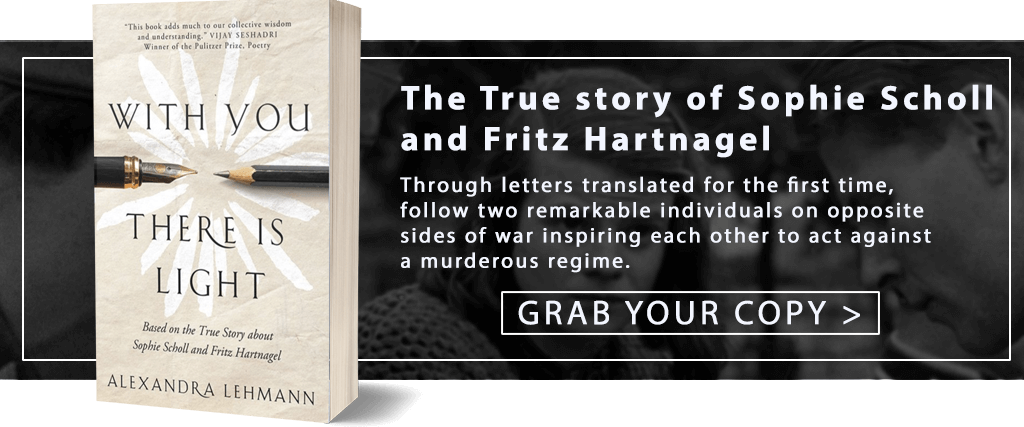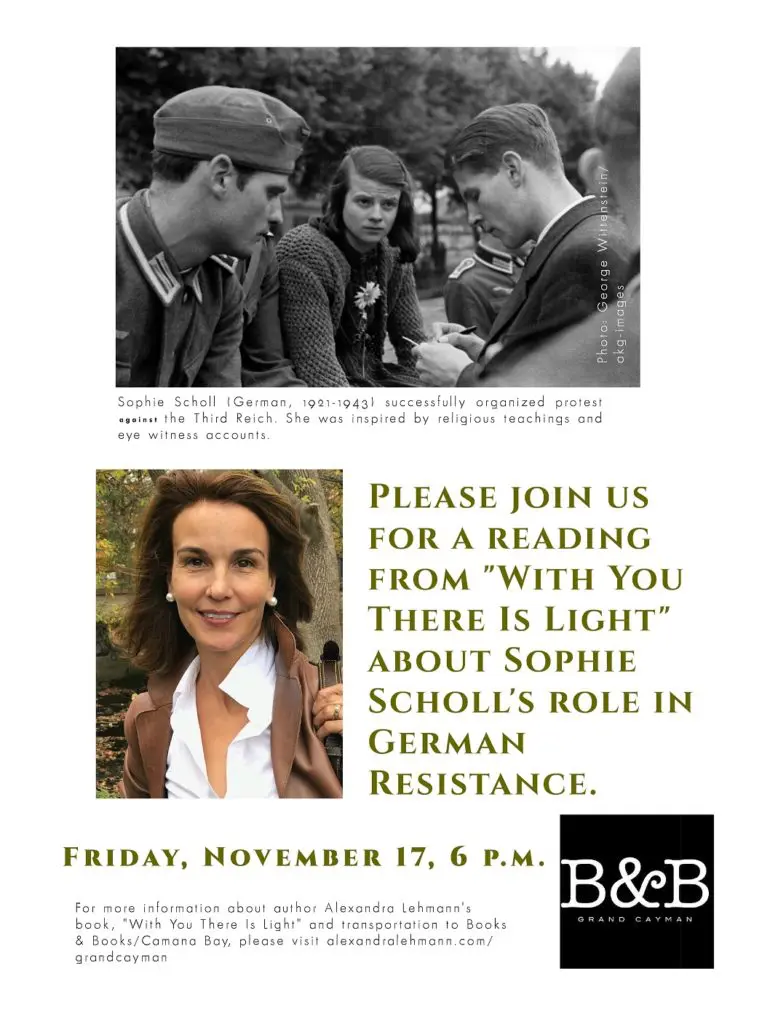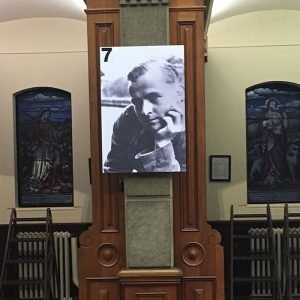An Often Asked Question Gets Answered Again
The last question came from a very bright student at the end of the fifth class I taught at my alma mater on “Sophie Scholl and the German Resistance against Hitler.” She asked, “Was Scholl’s boyfriend, Fritz Hartnagel, a Captain in the Wehrmacht, a Nazi?”
During the last two hours, ten students in this German Cultural Studies Class had engaged attentively in the subject of German Resistance. Our syllabus consisted of both learning about the content and the context in which Sophie Scholl and Fritz Hartnagel wrote one another letters. This word, Nazi, rightfully never goes away, and even now it is commonly being used to describe a sitting President. To have the question so honestly asked, and therefore demanding close examination was a reversal of an experienced prejudice deeply embedded in our society and educational system. With this one asked question, my years dedicated to Sophie Scholl and Fritz Hartnagel’s story felt redeemed.
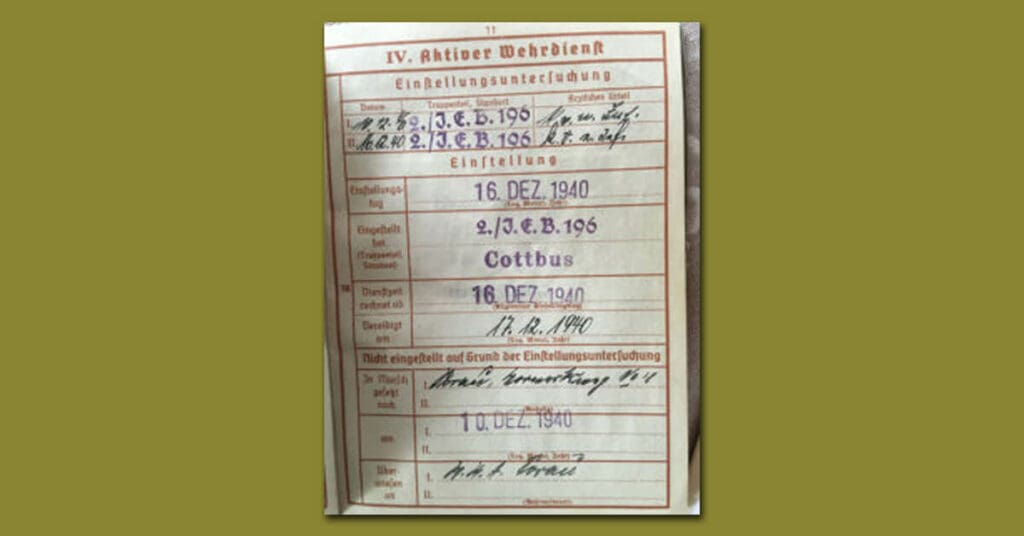
Sophie Scholl
Sophie Scholl (1921-1943) was, at the end of her life, not a Nazi. Most people know she was executed fighting against the Third Reich. As a teenager, however, Sophie was a Nazi as a group leader in the girls’ Hitler Youth. Her transformation involved several factors and her dying beliefs are totally clear. For her actions she is remembered for an unmatched courage and as an enduring example of principle and morality.
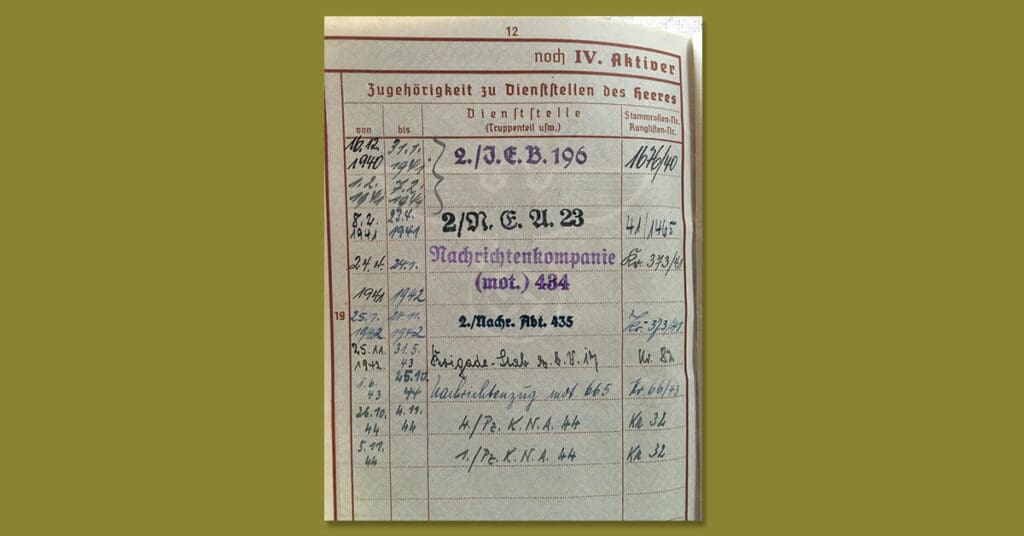
Fritz Hartnagel
Fritz Hartnagel (1917- 2001) demands a thorough study but ultimately reveals a clear answer. Fritz grew up in the Hitler Youth and graduated as an officer from the Prussian military academy. Field Marshall Rommel was his teacher. He swore the revised Fuehrer Oath. As Germany annexed Austria, Lieutenant Hartnagel led a communications company in the Black Forest. During the Blitzkrieg, he was stationed in Belgium, Holland, and France. As Hitler declared war on Russia, Fritz took part in Operation Barbarossa. With the invasion, his communications company followed the infantry through to Moscow. He was then moved and “forgotten” in Weimar (near Buchenwald) where he was ordered to set up a company for Africa.
Later in the summer of 1942, Hartnagel was sent again to Russia. The Battle of Stalingrad would follow that winter. Starving and surviving subzero temperatures, he was one of the last officers flown out of the surrounded city. Even with a partly amputated hand, he was sent back again to France where he finally commanded, under the penalty of death, the remains of his company to desert and surrender to the American forces. All during these time, Fritz wrote letters to his girlfriend, Sophie Scholl. Uncustomary, and under the penalty of death, he wrote to her about German army atrocities. After Sophie’s execution, he was accused of being a co-conspirator. After the war, he was accused of being a Nazi collaborator. What was he?
Related Posts
GOODREADS POPULARITY
RECENT POSTS
PICKS FOR YOU
Sophie Scholl (1921-1943), German student, teacher and resistance figure
During the Great War, Sophie was born in Forchtenberg located in the Swabian province during...
Use of the Word “Resistance” in Campaigning
Appropriating World War II Language for 2018 U.S. Mid Term Elections We need a leader,...




